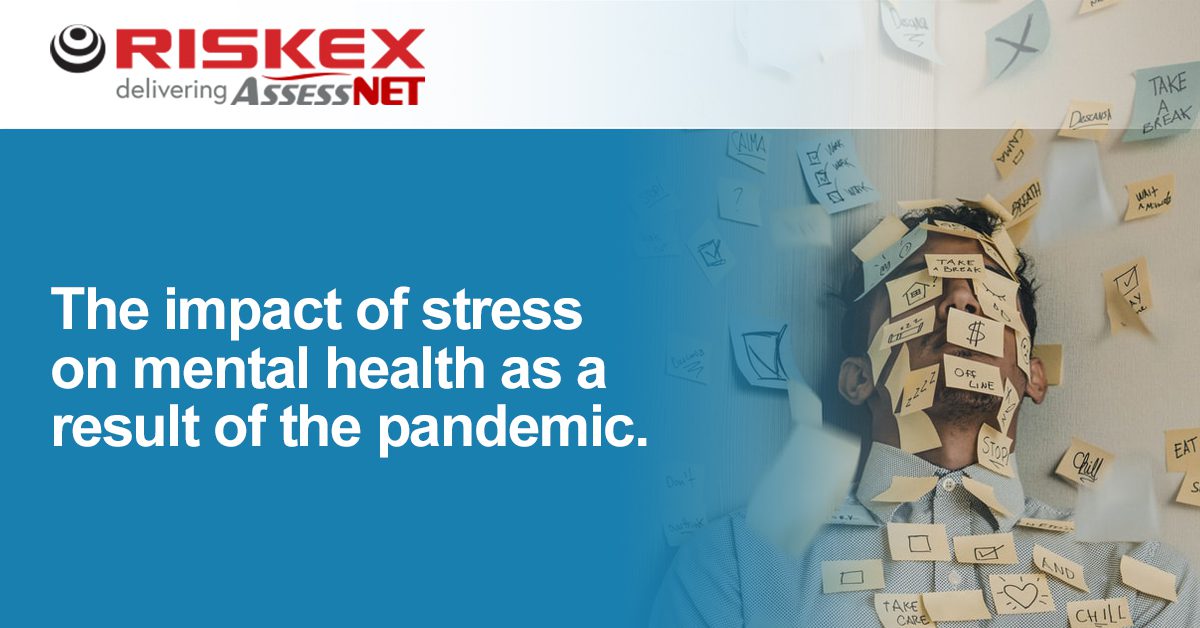Stress Awareness Month 2021
14/04/2021
14/04/2021

The month of April has been designated as Stress Awareness month, a national event started in 1992. During this time, health care professionals and health promotion experts aim to bring awareness to the causes and damaging consequences of unchecked levels of stress.
2020 was a turbulent year for mental health, as the Covid-19 pandemic caused many to experience increased levels of stress and anxiety, with new causes being derived from the pandemic. Many are worried about factors such as career uncertainty, lack of social interaction and missing family, and the fear of contracting or spreading the virus, to name just a few.
A study conducted by The Stress Management Society and Huawei App Galley identified that:
The study showed that 65% of people in the UK have felt more stressed since the Covid-19 restrictions began in March 2020. Three key causes for concern are feelings of disconnection, uncertainty, and a worrying loss of control. (Missing friends and family 57%, Uncertainty of when things will get back to normal 46%, Being confined to the home 41%, The changing rules around lockdown 34%, Fearing for the future post-Covid 34%, Money worries 30%)
The results show that Females (72%) report as more stressed than males (58%). Those in full-time employment (73%), and in particular front-line workers behind a counter (85%), in hospitals (80%) and education (76%), along with Students (78%) and people between the ages of 18-24 (79%) have all felt an increase in their stress levels.
Scotland (66%), Wales (66%) and Northern Ireland (55%) have reported feeling more stressed since March 2020. However, England has the most stressed regions of the UK; the North West (71%), North East (70%) and London (70%) all agree/strongly agree to feeling more stressed since the COVID-19 lockdowns.
Due to the restrictions of movement, many people have turned to technology as a form of escapism, entertainment, or for socialising with friends or family. They have also benefitted by using apps to de-stress or motivate themselves – people between 25-34 used more technology for this purpose during the pandemic than the other age groups.
A high percentage of respondents indicated that they are feeling more anxious (53%) and more depressed (44%) than usual. A way to tackle these feeling of isolation and loneliness is to keep connected with your support network, whether this be friends, family, colleagues etc. It is encouraging to see that the majority (52%) of the survey sample reported that they keep a support network.
Providing empathetic support by listening, being informed about mental ill-health, asking questions and encouraging discussion is a great way to aid people to comfortably express their feeling and emotions. This is important as the survey showed that whilst 52% reported being able to express their feelings and emotions, 19% disagreed/strongly disagreed with this statement.
Technology is a double-edged sword; it can be a source of stress as we can be over-engaged and ‘too available’. On the flip side, as the evidence indicates, it also presents us with a massive opportunity if applied strategically to positively affect our wellbeing.
The survey results show that many of the stressors are examples of ‘what if…?’ thinking; things that are worst-case scenarios, are out of our control or have not happened yet. 36% (all of the time/most of the time) found it difficult to concentrate, have been easily distracted, and 39% (all of the time/most of the time) have been feeling unmotivated. Practising a form of meditation or mindfulness can help people to be less distracted with the ‘What if’; and more aware of the ‘here and now’. Mindfulness can give us more insight into thoughts, feelings and body sensations to improve our connection with the present.
The Stress Management Society have many free resources available on their website relating to aspects of stress, including:
One key resource is a free personal stress test, which delivers a tailored report of helpful suggestions based on your responses: https://www.stress.org.uk/individual-stress-test/
The full stress report: https://www.wellbeing.work/blog/a-study-on-the-impact-of-stress-and-mental-health-as-a-result-of-the-pandemic/
BizSpace
Linford Forum
18 Rockingham Drive
Milton Keynes
Buckinghamshire
MK14 6LY
What3words reference:
Make an enquiry:
Company No. 05174302
VAT No. 844 5092 22

 Riskex welcomes new Business Development Manager, Aaron Good
Riskex welcomes new Business Development Manager, Aaron Good